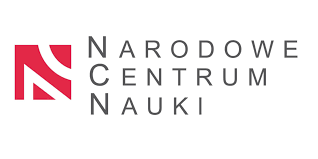Obszary badawcze
Pokój
B012Uwagi
Adi Weidenfeld, is an assistant professor in the department of innovation, Faculty of Economic Sciences, University of Warsaw and is interested in interregional knowledge networks, regional diversification, tourism innovation, visitor attractions. He is currently working on his OPUS project funded by National Science Poland focusing on knowledge networks of regions. He has been working extensively on the relationships between businesses, regions and innovation related processes from an evolutionary economic geography perspective. He has worked as a senior lecturer in the UK and completed a Marie Curie fellowship in Finland.
From Knowledge Networks to Inter-Regional Innovation Systems in the context of Devolution of Powers to Regions
supported by the National Science Centre Poland (Nardowe Centrum Nauki) [grant numbers UMO-2019/35/B/HS5/04010]

Project aim:
The project examines the structure, membership, scope, channels, power relations, geopolitical environments, governance, systemic nature and qualities (formal and informal institutions, boundedness, shared objectives and coherence of Knowledge Networks of Regions (KNoRs). These are networks of regional groups of actors from different regions engaged in learning, knowledge exchange and innovation activities. These take place among groups representing each region’s actors (organisations, local authorities, universities and others). Understanding the above will help regional (and city) stakeholders when deciding on network membership and maximising its efficiency of being a member.
The project includes an international comparison of networks of cities and regions with a special focus on the UK and Poland
The first stage of the study includes secondary qualitative data analysis of the following Transnational Knowledge Networks of Cities (TKNoCs):
1. Districts of Creativity Network- 2. Global Resilient Cities Network
3.C40 4.International Urban Cooperation – EU
5. Barcelona/Catalonia 6.Partnership for Healthy Cities
7. Mastercard City Possible 8.ASEAN Smart Cities Network
Main Policy recommendations:
All networks have formal regulations and informal norms with some having more formal ones. Boundedness of TKNOCs in terms of their geographic spread of their members’ locations and membership exclusivity is affected over time by sponsors’ and members’ motivation, which determine and change membership exclusiveness (i.e. admission entry conditions). This affects the shared strategic aims among city members and the extent to which they complement each other’s skills and competence (i.e. coherence). Strict exclusive membership may help sustain boundedness and shared strategic objectives whereas easing admission conditions may help maintain coherence along time as new skills and competence may exist among new members located outside TKNOCs’ boundaries. Compromising boundedness is also affected by founders’ and/or sponsors’ political and governance interests that are beyond the scope of this paper. Stable boundedness may be secured to prevent high turnover of members, which conversely risks collaborative continuity and institutional structures. Thus, maintaining high boundedness over time can benefit TKNOCs for addressing strategic aims and objectives and joint missions as well as the need to overcome interregional diversity among members such as political, technological, innovation agenda, cultural, etc


